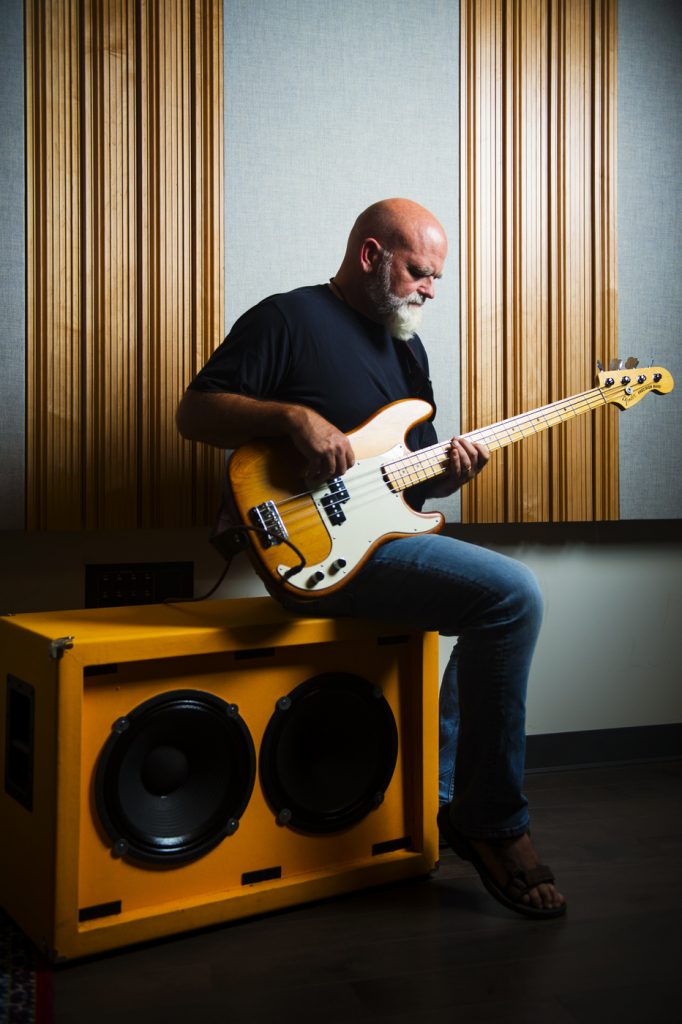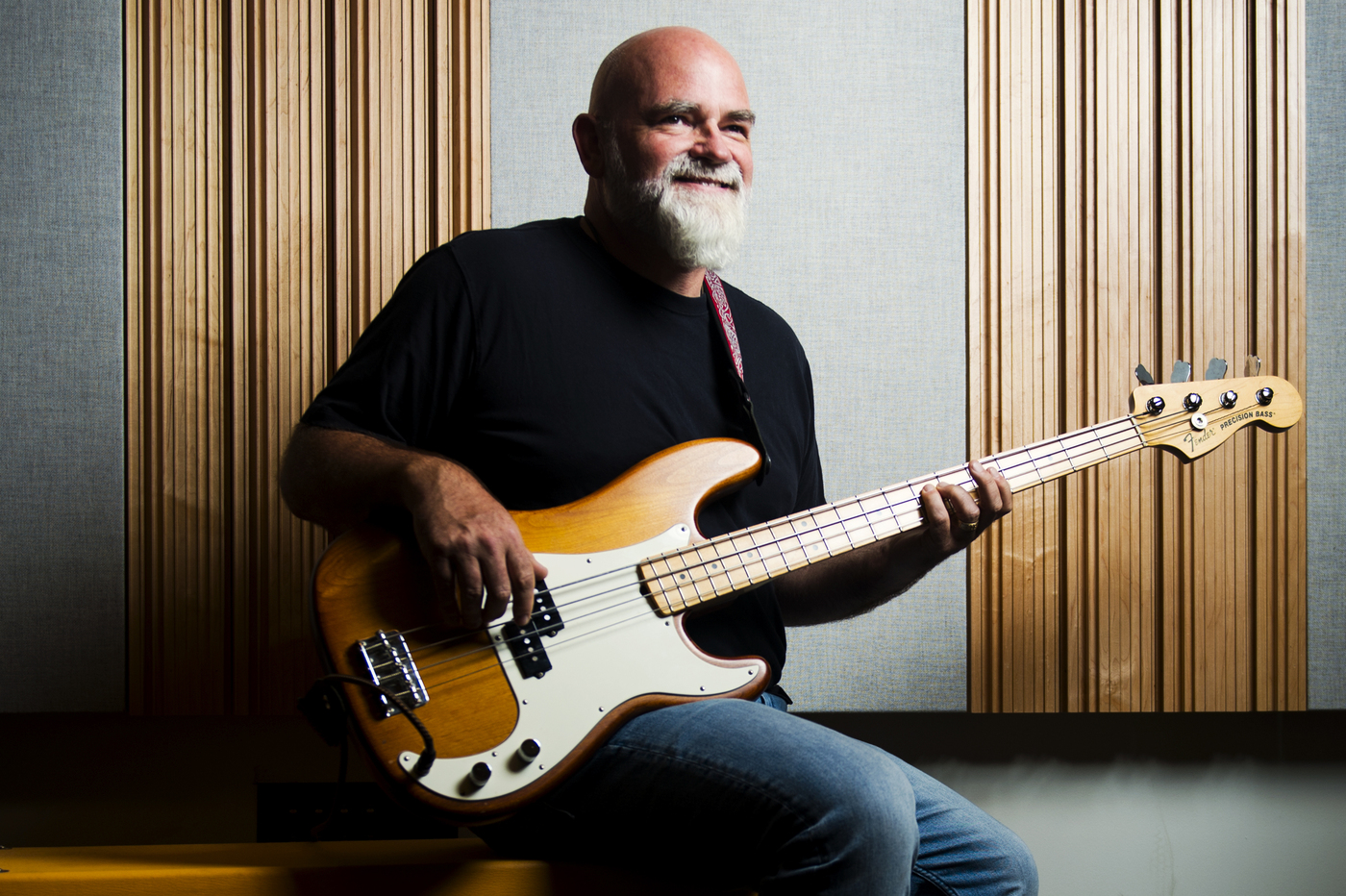“After the show you feel so revved up,” says John Coley. “You go home and you can’t fall asleep for hours.”
It’s late-June and Coley is reflecting on the adrenaline rush of playing live music in his blues-rock band The Stacking Stones, whose self-titled debut album is out now. When he’s not working as an associate professor of psychology at Northeastern, he’s moonlighting as the bass player in the six-piece ensemble of longtime friends and musical collaborators. “I get a little nervous every time we hit the stage,” he says, “but it’s pretty exciting.”
The band is scheduled to play three state-side shows in August and September, including gigs at Terry O’Reilly’s Irish Pub in Newton, Menotomy Grill & Tavern in Arlington, and Thunder Road in Somerville. “It’s a real pleasure and a privilege to play with people you care about,” says Coley. “Music is complicated, and nothing ever goes as practiced, but it’s always an amazing experience.”
The birth of a bassist
Coley grew up listening to 80s rock, with a particular interest in new wave and alternative. He’s a big Bruce Springsteen fan, calling his music “the soundtrack of my coming of age.”
He first picked up the bass guitar 15 years ago, with the intent of jamming with his soon-to-be bandmates, and he’s taken lessons off-and-on for the past decade, honing his musical acumen on his four-stringed Fender Precision Bass. One of his favorite bass lines can be heard in The Allman Brothers’ song “Melissa,” the second single from the group’s third studio album. “It’s a beautiful song,” he explains, “and if you listen carefully, you can hear the bass doing some beautiful things.”
His playing style is simpler, more understated. “I do my best to compliment what the other musicians in the band are doing,” says Coley. “While I’ll throw in a bass fill every now and then, I’m mostly in the background, playing in the pocket with the drummer.”
‘OK, we love this’
The Stacking Stones started playing live shows in 2013, some four years after they had begun jamming in the guitar player’s attic. All six band members would convene on Sundays, playing music, having dinner together. Eventually, they got to be pretty good. “It was such an enriching experience for all of us,” says Coley. “The more we played, the better we sounded, and it just snowballed from there.”
The first show—held in a rented-out function hall in Arlington, Massachusetts—did not go well. The Stacking Stones were “nervous and sounded like hell,” according to Coley, and the owner of the space decided to close up shop before the band had the opportunity to perform its second set. But all’s well that ends well: “After that, we said, ‘OK, we love this.’”
The Stacking Stones’ debut album—released on iTunes, Google Play, and other digital music platforms—is purposefully raw and unvarnished. It was recorded live over four days of fun at Middleville Studio in North Reading, Massachusetts, where the recording engineer succeeded in capturing the band’s sound “warts and all.”
For Coley, the experience represented a glimpse into the life of a rock star, a change of pace from his day-to-day work as a psychologist. “Sitting in the studio with my headphones on,” he says, pausing. “It was like I had always imagined it would be.”
Originally published in News@Northeastern on July 6, 2017

Professor John Coley practices in the recording studio. Photo by Adam Glanzman/Northeastern University

